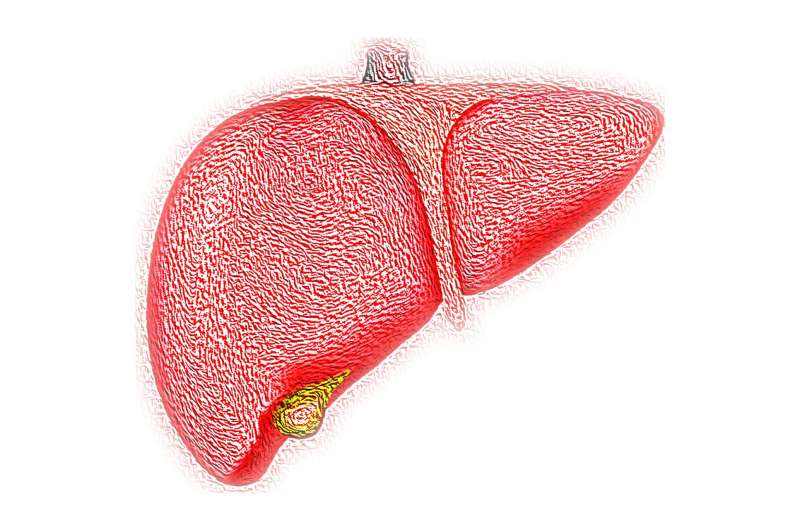
Experts from Cedars-Sinai Cancer have analyzed patient samples, along with studies conducted in animal models, to identify a novel immune checkpoint pathway to treat hepatocellular carcinoma, the most common form of liver cancer. This big data analysis, coupled with existing immune boosting therapies, provides a new frontier for treatment strategies.
The findings—centered on the discovery of a novel role for the IL-27 signaling pathway in liver cancer—were published today in Cancer Discovery.
Previous research suggests the IL-27 pathway may play an important role in the immune response of various inflammatory diseases. However, this is the first time scientists have identified this new mechanism in liver cancer.
“We found that disrupting the IL-27 pathway in mice prevented liver tumors from growing,” said Ekaterina Koltsova, MD, Ph.D., corresponding and senior author of the study, a faculty member of Cedars-Sinai Cancer and the departments of Medicine and Biomedical Sciences. “This exciting discovery supports the idea of therapeutic antibodies or other molecules to block the IL-27 pathway, and in turn, activate an anti-cancer immune response in liver cancer.”
The aim, Koltsova says, is that activating the immune response will enable a liver cancer patient’s immune system to kill the cancerous cells.
“This research also led us to the understanding that we can inhibit the IL-27 pathway alone, or together with other well-known immunotherapies, to tackle otherwise hard-to-treat cancers, like liver cancer,” said Koltsova.
Patients with liver cancer, including hepatocellular carcinoma, do not frequently respond to immunotherapies, and survival rates remain low. Although preventive approaches aimed at treating hepatitis B and C will potentially curb a proportion of new cases, liver cancers caused by environmental toxins and fatty liver disease are on the rise.
Researchers suggest liver disease and cancer are rising because of the increased prevalence of fatty liver disease, coupled with the epidemic of obesity and Type 2 diabetes-as well as individuals’ increased exposure to environmental toxins and pollutants.
“We know that many patients with chronic liver disease and inflammation are at high risk for developing hepatocellular carcinoma, which makes finding effective treatment increasingly important,” said Sergei Grivennikov, Ph.D., professor of Medicine and Biomedical Sciences and a co-senior author for this study. “This pivotal basic research may pave the road for new treatment options for this devastating disease.”
In the study, researchers focused both on laboratory research conducted in mouse models testing the IL-27 pathway and on samples collected from patients with liver cancer. Specifically:
- In the laboratory, scientists manipulated the expression of the IL-27 receptor, then studied its effect on disease development and identified liver immune cells called natural killer (NK) and innate lymphoid cells as the most affected by IL-27.
- Once cancer developed, researchers tested experimental immunotherapies that block IL-27 and showed that this inhibited liver cancer growth.
- Using publicly available big data sources to perform original analyses, the research team looked for connections between the IL-27 pathway-and other molecules-and liver cancer progression in patients.
“Taken together, our data suggests that blocking the IL-27 pathway and combining the right immunotherapy may provide a new therapeutic strategy in liver cancer,” said Koltsova. “This advance may also provide new opportunities for preventive approaches in high-risk patients with nonalcoholic liver disease and liver fibrosis who likely will develop hepatocellular carcinoma.”
As a next step, Cedars-Sinai Cancer researchers-including Aleksandra Mazitova, a research associate in the Koltsova Laboratory and a co-first author of the study-aim to further elucidate how the IL-27 pathway regulates other cells in the liver. From there, they can determine the optimal strategies to best target this pathway to produce effective immune responses in other cancers or other diseases dependent on IL-27 for control of immune function and inflammation.
Source: Read Full Article
